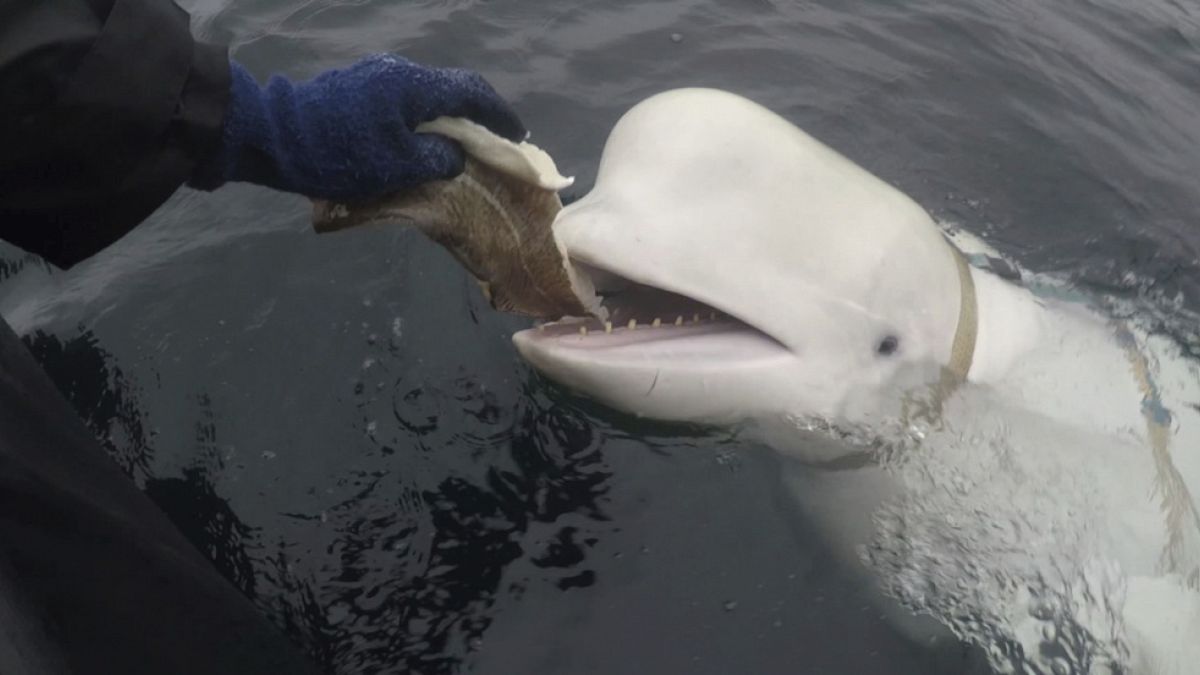The white beluga whale named Hvaldimir, first spotted in Norway in April 2019, has died and its carcass was found floating at the Risavika Bay in southern Norway. The beluga gained international attention when it was found near the Arctic city of Hammerfest wearing a harness, sparking rumors that it may be a Moscow spy. The 4.2-meter-long, 1,225-kilogram whale was lifted out of the water with a crane and taken to a nearby harbor for examination to determine the cause of death. Marine biologist Sebastian Strand, who has monitored Hvaldimir for the past three years, stated that no major external injuries were visible on the animal.
The beluga was first spotted by fishermen in April 2019 wearing a harness with what appeared to be a mount for a small camera and a buckle marked with the text “Equipment St. Petersburg.” This led to allegations that the beluga could be a “spy whale,” as the Russian navy is known to have trained whales for military purposes. Over the years, Hvaldimir was seen in several Norwegian coastal towns, showing interest in people and responding to hand signals. It is believed that the beluga arrived in Norway by crossing over from Russian waters, where it may have been held in captivity.
The Norwegian public broadcaster NRK reported the whale’s death, with marine biologist Sebastian Strand explaining that the cause of death was not immediately clear. The NGO Marine Mind, which had been monitoring Hvaldimir, also stated that the beluga appeared to have a friendly demeanor towards humans, suggesting that it had been in captivity before arriving in Norway. The beluga’s unique behavior and the harness it was found wearing contributed to the speculation that it was involved in espionage activities.
Despite the unusual circumstances surrounding Hvaldimir, experts will continue to analyze the whale’s remains to determine the exact cause of death. The beluga’s presence in Norwegian waters and its friendly interactions with humans have captivated people around the world, leading to various theories about its origins and purpose. The story of Hvaldimir, the alleged “spy whale,” highlights the complex relationship between animals and humans, raising questions about the role of marine animals in military operations and the importance of protecting wildlife in their natural habitats.











